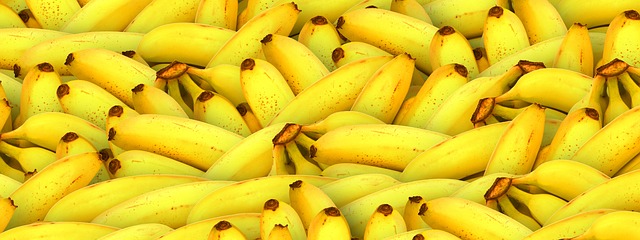In the first trimester, a pregnant woman does not need extra calories. However, during the second trimester, she needs 350 extra calories a day; and 450 extra calories a day during the third trimester. A medium banana contains 110 calories. It is rich in vitamins and fibres, and like most other fruits, a natural choice for pregnant women for many reasons. Here are some of them:
- Bananas are rich in vitamins – especially vitamin B6 and vitamin C. The growth of a foetus’ central nervous system is highly dependent on the mother’s vitamin intake. Vitamin B6 helps transmit oxygen to the baby’s tissues through the mother’s haemoglobin. Plus, it acts as a neurotransmitter and helps boost up the growth of red blood cells. Thus, the vitamins act as great antioxidants boosting the immune system.
- A banana has about 2.3 gm of dietary fibre which makes it a good antidote for constipation – a common effect of pregnancy. On the other hand, diarrhoea or morning sickness – another frequent complaint by pregnant women – can be kept under control by the consumption of bananas. They have gum fibres and pectin which helps absorb excess water in the body and provides digestive relief. Additionally, the potassium that bananas contain help with leg cramps and naturally heal swelling.
- A pregnant woman’s diet is planned to keep in mind the development of the foetus. Banana contains folic acid which is essential to help the growth of nerves, brain, and spinal cord of the foetus. Folic acid also aids foetus’ absorption of nutrients from the mother’s body. A deficiency of folic acid might cause premature births or sometimes children born with deformities.
- During pregnancy, maintaining the right levels of blood sugar and cholesterol is important. While fluctuating blood pressure is natural, a healthy diet helps maintain anxiety levels and reduces stress. The potassium in bananas help maintain these levels – especially for women with pregnancy diabetes who are advised to consume bananas regularly. Bananas provide instant energy and can sometimes even act as a full meal along with milk, cereals or other fruits. It contains all the three natural sugars – glucose, fructose, and sucrose.
- We are all aware of the importance of calcium to help the growth of bones and skeletal system. 200 gm of banana contains 10 mg of natural calcium. Calcium is a requirement for not just the baby, but also to regulate neurotransmitters and to make muscle contractions for the mother less painful. For mothers who breastfeed, bananas help by providing sufficient calcium and minerals for the development of baby’s bones and over-all strength.
- Pregnancy brings unexpected hunger pangs for women; and bananas are great source to kill these pangs and boost energy. It is full of carbs and can act as a great substitute to other cravings like chocolates or chips. It can be eaten between meals or once every few hours – and is even a natural stress buster. After the first trimester, 2-4 bananas per day is advised to maintain normal, balanced conditions. When bored of ripe bananas, green bananas can be a great source of energy in the diet plan too.
Be careful
However, bananas contain chitinase which can cause allergies for women with latex fruit syndrome. Chestnuts and avocados also have high amounts of chitinase and it is advised that women who have experienced discomfort or allergies by consumption of these fruits, check with their doctors before consuming bananas.

